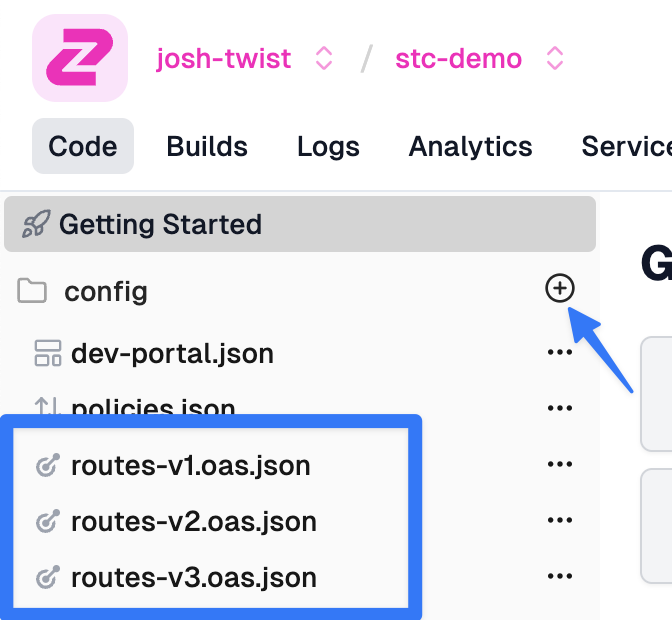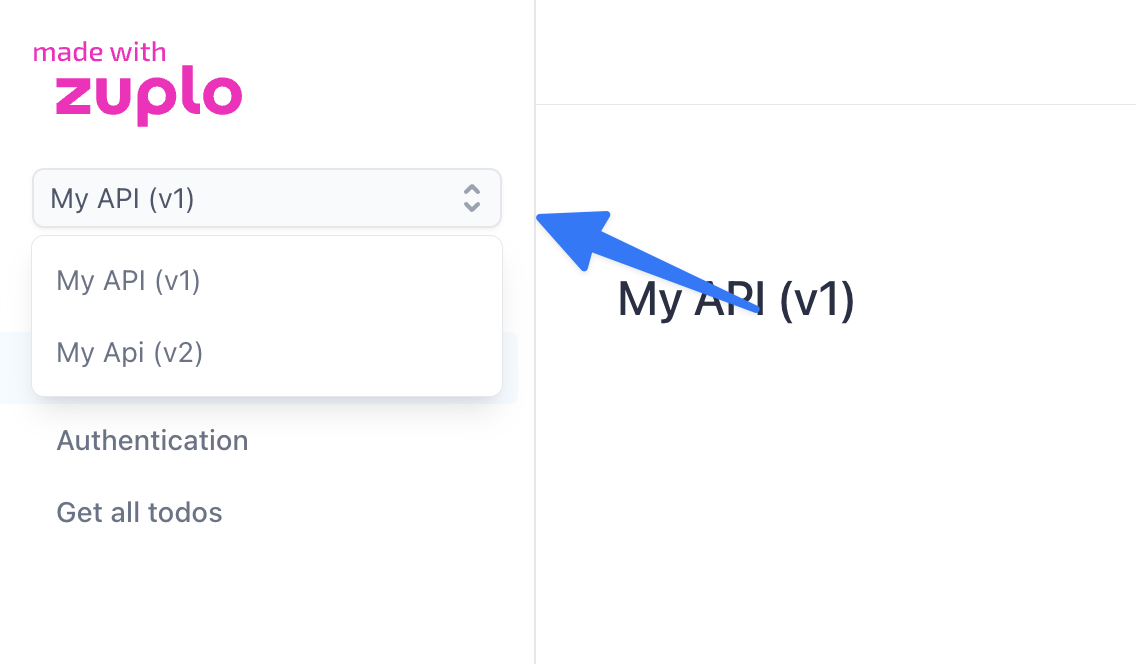This is a brief guide explaining how you might approach versioning your APIs on Zuplo. We use Zuplo internally at Zuplo and this is our approach.
The focus of our versioning approach leans on URL-based versioning which is our recommended approach, read more at How to version an API.
Separate OpenAPI files
We recommend having separate OpenAPI files for different major versions of your
API. Fortunately, a single project in Zuplo can have as many OpenAPI routing
files as you like. The default one we create for you routes.oas.json can be
renamed, as shown here:

Note you can create a new OpenAPI file by clicking the '+' icon shown.
Each routing file would now have it's own routes, each prefixed by /v1 and
/v2.
We also recommend updating the info properties in your OpenAPI file and
include the version as this will help your users disambiguate the version in
your developer portal:
Code
When Zuplo generates your developer-portal we put each OpenAPI version into it's own document and allow users to pick. This is currently presented in a dropdown:

Using Zuplo as a versioning layer
Because Zuplo is a programmable gateway it's a powerful tool in your versioning
arsenal. For example, let's imagine you want to make a breaking change between
v1 and v2 of your todos API where the todoItems in v2 won't include a piece
of information in the previous version.
This can be entirely achieved in Zuplo by adding a v2 OpenAPI file and adding an identical route from v1 but changing the path:
/v1/todos ==> /v2/todos
The only other change you'd need to make to this new version is to add an outbound custom policy that removes the property, e.g.
Code
And QED - your Zuplo gateway is being used to update your old API and make it shiny and new.
There's a video accompaniment for this document on YouTube here: Versioning an API on Zuplo